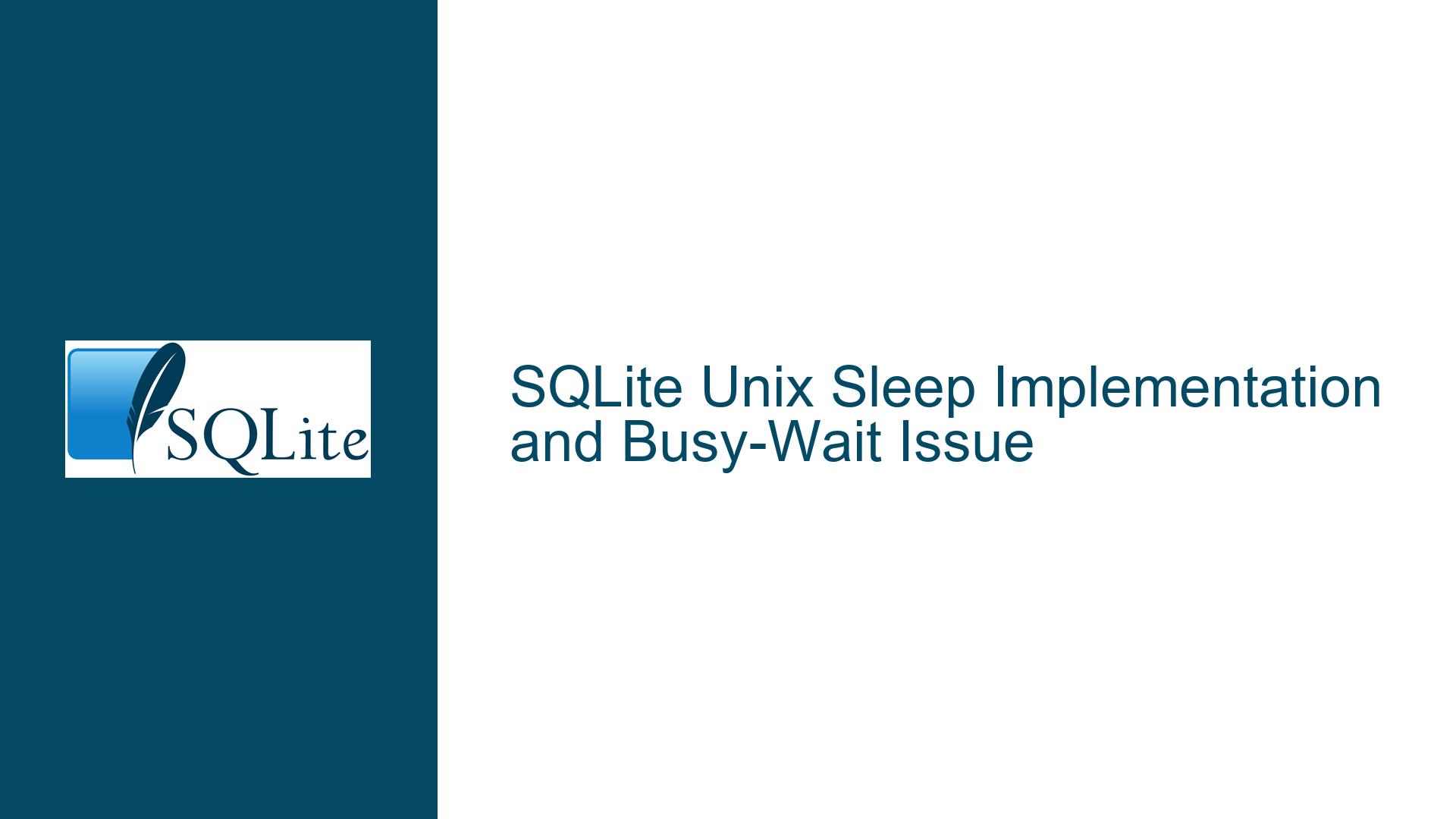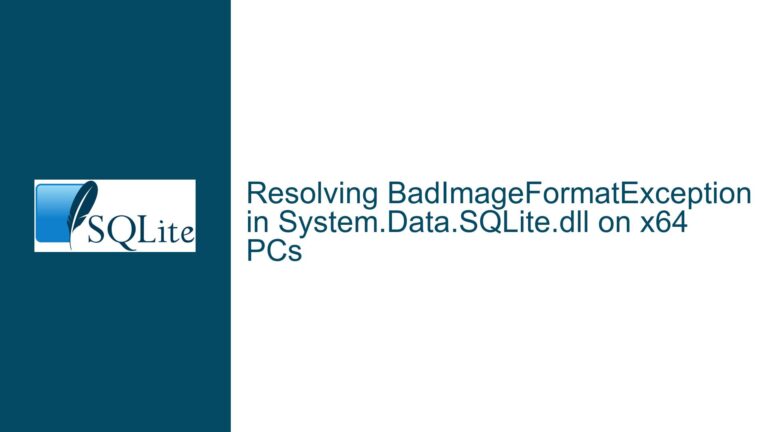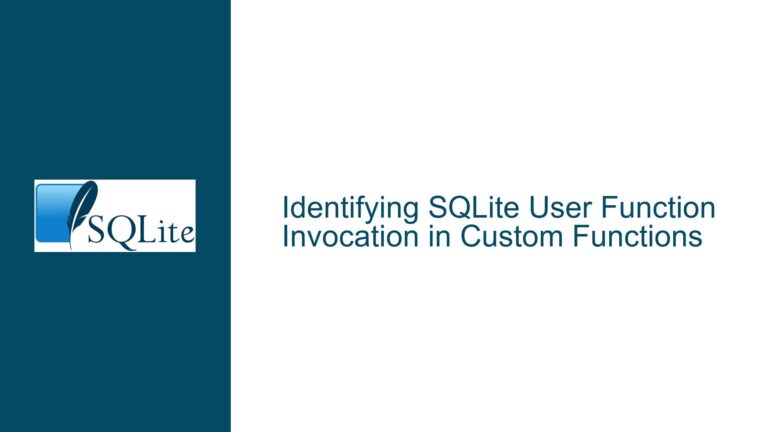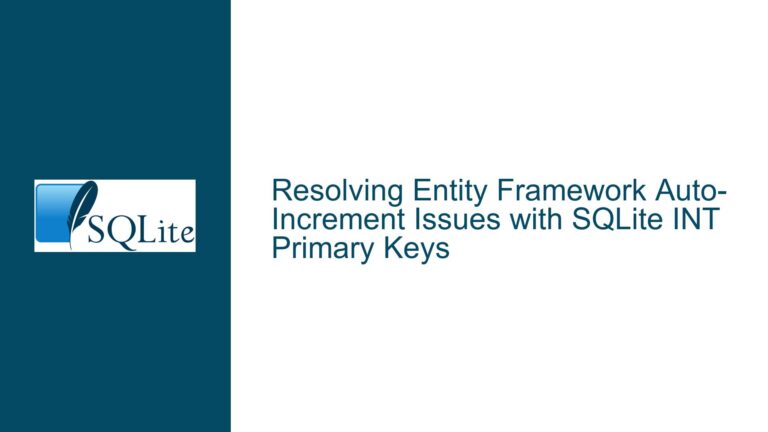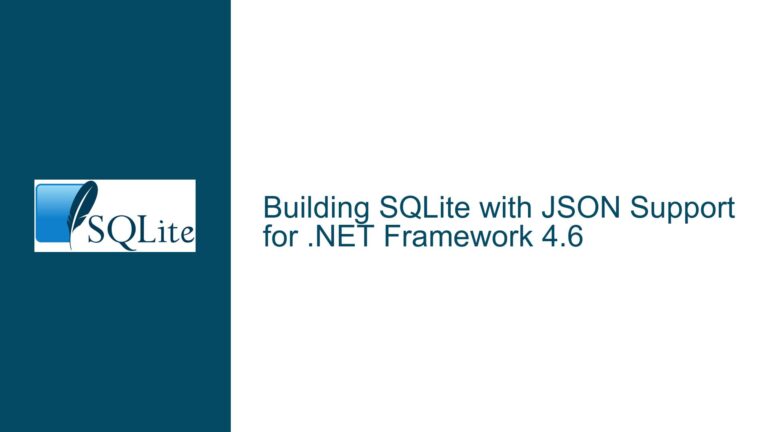SQLite Unix Sleep Implementation and Busy-Wait Issue
SQLite Unix Sleep Implementation and Busy-Wait Issue
The core issue revolves around the implementation of the unixSleep function in SQLite, specifically in the src/os_unix.c file. The function is designed to handle sleep operations on Unix-based systems using the usleep system call. However, the current implementation does not account for the POSIX specification of usleep, which mandates that the number of microseconds passed to usleep must be less than one million. When usleep is called with a value greater than or equal to one million microseconds, it may fail with an EINVAL error, leading to a busy-wait loop instead of a proper sleep operation.
This issue is particularly problematic in scenarios where sqlite3_sleep is used to implement longer sleep durations, such as in the fossil backoffice application, which attempts to sleep for up to a minute. When usleep fails, the application enters a busy-wait state, causing the SQLite database to be constantly locked, touched, fsynced, and unlocked. This behavior starves other writers, leading to performance degradation and potential database contention issues.
The patch provided in the discussion addresses this issue by modifying the unixSleep function to handle sleep durations greater than or equal to one million microseconds correctly. Instead of passing the entire duration to usleep, the patch divides the duration into a number of seconds, which are passed to the sleep function, and a remainder of microseconds, which are passed to usleep. This ensures that the sleep operation adheres to the POSIX specification and avoids the busy-wait issue.
Interrupted Write Operations Leading to Index Corruption
The busy-wait issue caused by the improper handling of usleep in the unixSleep function can lead to several adverse effects on the SQLite database. One of the most significant consequences is the potential for interrupted write operations, which can result in index corruption. When the fossil backoffice application enters a busy-wait state, it continuously locks and unlocks the database, preventing other processes from acquiring the necessary locks to perform their operations.
This constant locking and unlocking can lead to situations where write operations are interrupted or delayed, causing inconsistencies in the database. For example, if a write operation is partially completed before being interrupted, the database may end up with incomplete or corrupted data. This is particularly problematic for indexes, which rely on consistent data to maintain their structure. If an index becomes corrupted, it can lead to incorrect query results, slow performance, and even database crashes.
Additionally, the constant fsync operations performed during the busy-wait state can further exacerbate the issue. fsync is a system call that ensures that all data written to a file is flushed to the underlying storage device. While this is necessary for data integrity, excessive fsync operations can lead to significant performance degradation, especially on systems with slow storage devices. This can further delay write operations and increase the likelihood of index corruption.
Implementing PRAGMA journal_mode and Database Backup
To address the issues caused by the improper handling of usleep in the unixSleep function, several steps can be taken to ensure the stability and performance of the SQLite database. The first step is to apply the provided patch, which modifies the unixSleep function to handle sleep durations greater than or equal to one million microseconds correctly. This will prevent the busy-wait issue and ensure that the database is not constantly locked and unlocked.
In addition to applying the patch, it is recommended to implement the PRAGMA journal_mode setting to enhance the database’s resilience to interruptions. The PRAGMA journal_mode setting controls how SQLite handles the journal file, which is used to ensure atomic transactions. By setting the journal mode to WAL (Write-Ahead Logging), the database can achieve better concurrency and performance, as it allows multiple readers and writers to access the database simultaneously without blocking each other. The WAL mode also reduces the need for frequent fsync operations, further improving performance.
Another important step is to implement a robust database backup strategy. Regular backups are essential for protecting against data loss and corruption, especially in scenarios where the database is subject to frequent interruptions. SQLite provides several tools for creating backups, including the sqlite3_backup API and the .backup command in the SQLite shell. These tools allow for the creation of consistent backups without blocking other database operations, ensuring that the backup process does not interfere with the normal operation of the database.
Finally, it is important to monitor the database for signs of corruption and take corrective action if necessary. SQLite provides several tools for checking the integrity of the database, including the PRAGMA integrity_check command, which scans the database for inconsistencies and reports any issues. If corruption is detected, it is important to restore the database from a backup and investigate the root cause of the corruption to prevent it from recurring.
In conclusion, the improper handling of usleep in the unixSleep function can lead to significant issues in the SQLite database, including busy-wait loops, interrupted write operations, and index corruption. By applying the provided patch, implementing the PRAGMA journal_mode setting, and establishing a robust database backup strategy, these issues can be mitigated, ensuring the stability and performance of the database. Regular monitoring and integrity checks are also essential for detecting and addressing any potential issues before they escalate.
